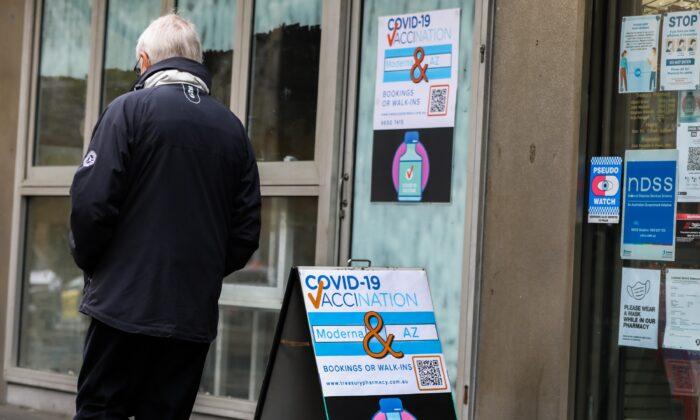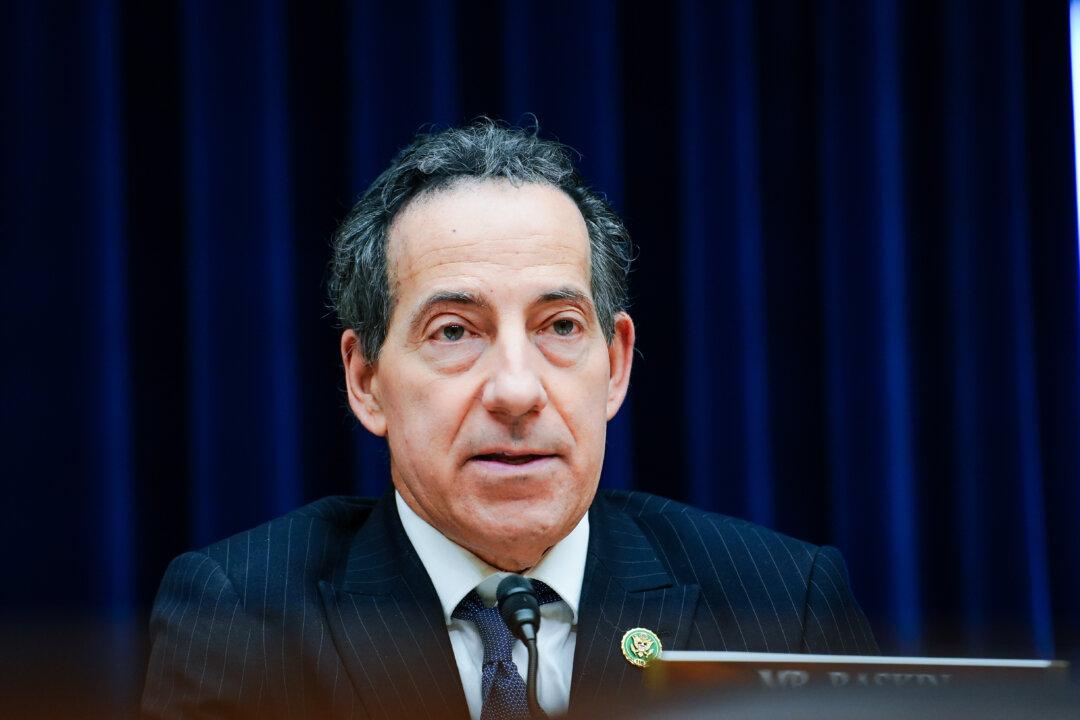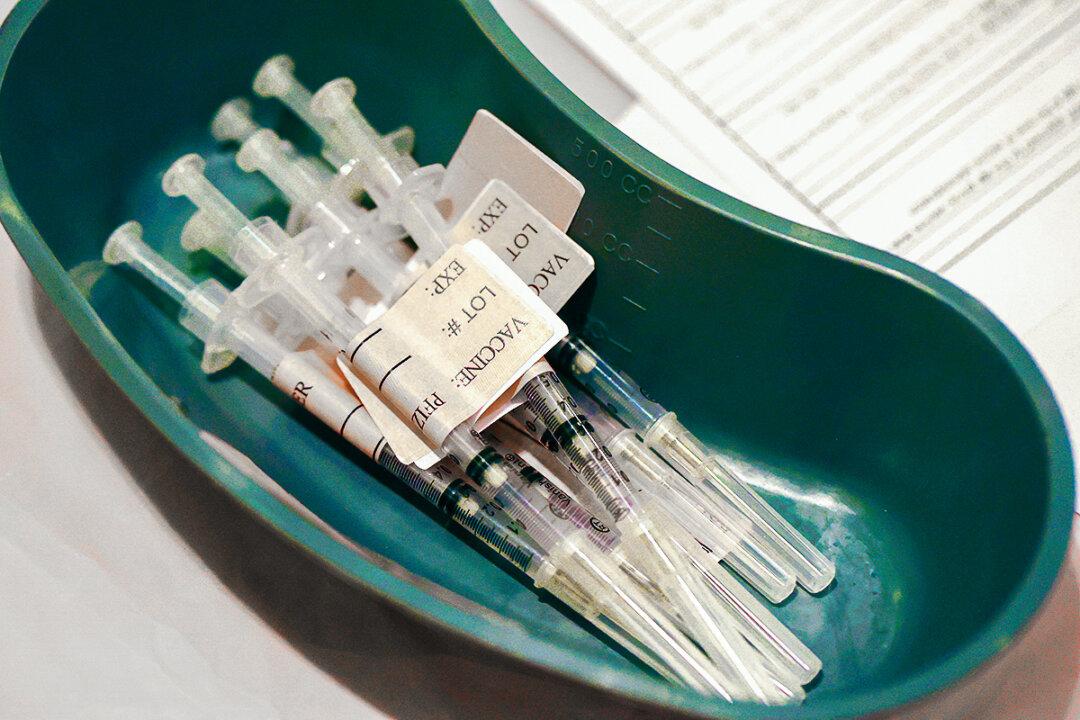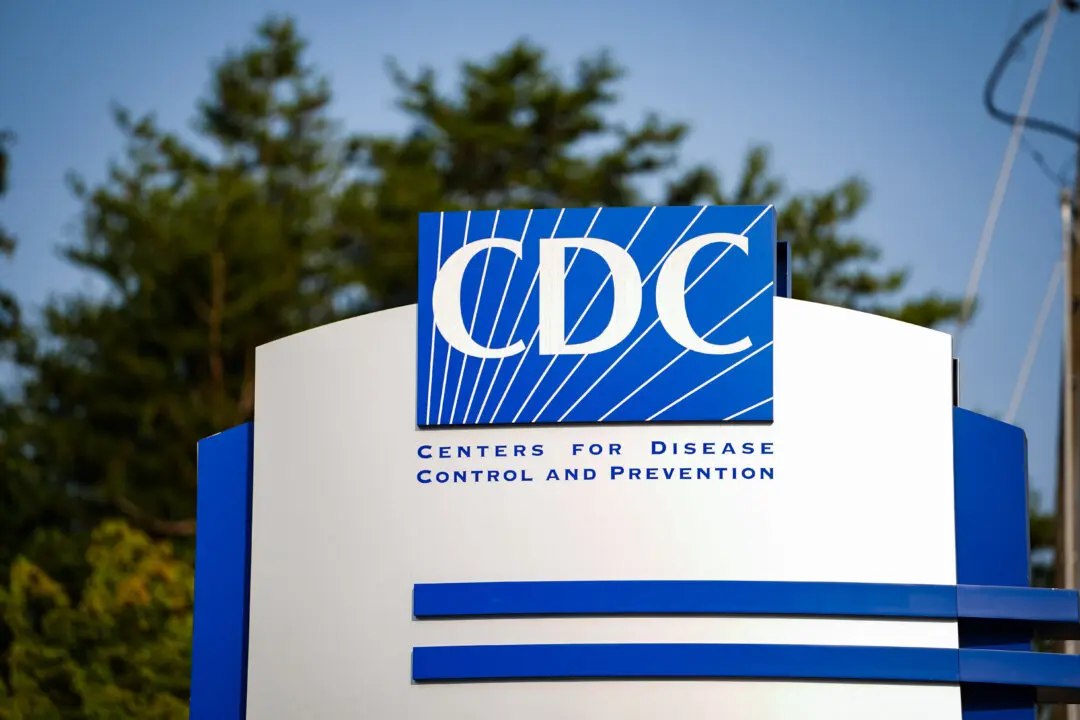A group of experts that advises the Australian government on vaccination policy recommended on Aug. 3 against COVID-19 vaccination for all children under 5, except for those with serious underlying conditions.
The Australian Technical Advisory Group on Immunisation (ATAGI) issued its findings after analyzing clinical trial data and taking into account how healthy children who get COVID-19 face little risk of experiencing severe illness.
The group is recommending COVID-19 vaccination for children aged 6 months to 4 years if the children have type 1 diabetes, chronic neurological conditions, Down Syndrome, or other serious conditions that increase the risk of severe COVID-19.
But the panel said children without the conditions should not get a vaccine.
Australia’s Therapeutic Goods Administration in July provisionally approved Moderna’s vaccine for the young age group.
Children who do get a shot should be administered the primary series of two doses, spaced eight weeks apart, the advisory panel said.
500,000 Doses
Half a million doses have been ordered by the Australian government, Health Minister Mark Butler told reporters in Canberra.“Given that there’s quite a limited cohort here of children who are particularly vulnerable to severe illness, we’re confident that there will be a reasonable uptake but this obviously is a matter for parents to decide,” Butler said.
“And I encourage them if they have any questions to consult with their treating medical practitioners,” he added.
Data
Moderna’s clinical trial for children under the age of 5 was based on the immune response triggered in children. Because the vaccine prompted a response similar to that recorded in adults in 2020, the company said the vaccine was effective.The company’s vaccine, though, like other COVID-19 shots, has proven increasingly unable to prevent infection in the real world as new variants emerge, and the trial estimate of efficacy against infection was under 50 percent for children under 5 years old.
U.S. regulators in 2020 set the efficacy threshold at 50 percent, a mark that has also been put forth by the World Health Organization.
The trial was also unable to estimate the protection against severe disease, because none of the children, vaccinated or unvaccinated, experienced a severe case.
“The lower the risk to you, the more you’ve got to show benefit from any vaccines. And what I thought was a bit disconcerting about that data,” Dr. Peter Collignon, an infectious diseases physician at Canberra Hospital, told The Epoch Times when the results were announced. “My overall view generally, was that for any vaccine to get approved, it had to have a 50 percent efficacy. Well, that was for adults. So in my mind, the bar for children should be higher than that, because their risk is so much lower.”






Friends Read Free